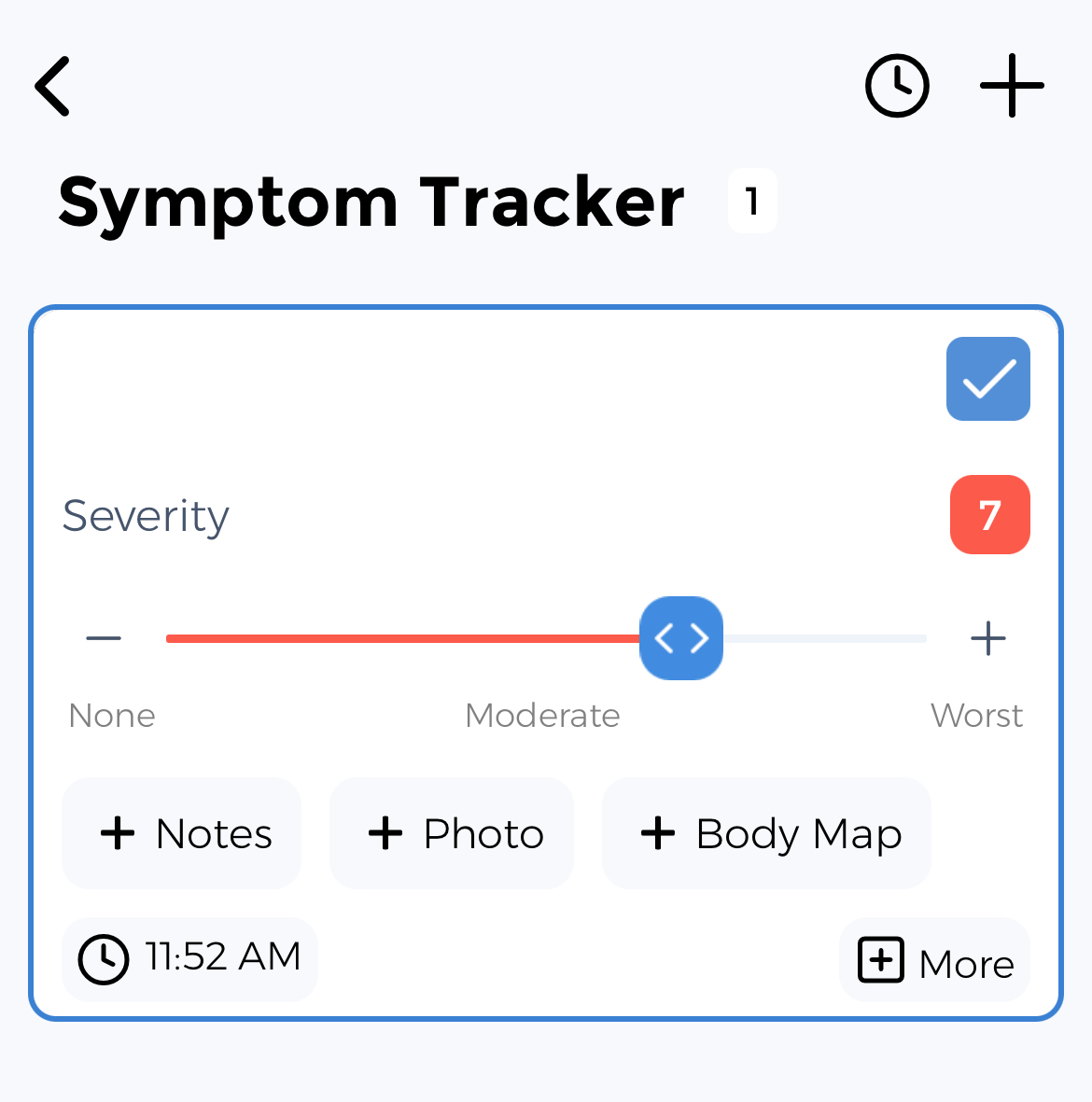Fabry Disease Symptom Tracker: Your Health Assistant
Living with Fabry Disease means dealing with burning pain in hands and feet, decreased sweating, heat/cold intolerance, and more. But here's the truth: Data is your most powerful tool. Every logged symptom reveals patterns—so you can take informed action.
Fabry disease is a rare genetic disorder that causes a buildup of a fatty substance called globotriaosylceramide in cells throughout the body. This accumulation leads to progressive damage to tissues and organs, particularly affecting the heart, kidneys, and nervous system. Tracking symptoms helps monitor disease progression and treatment effectiveness.
Key Fabry Disease Symptoms You Should Track
Struggling with symptoms like these? Tracking them reveals patterns, triggers, and how they impact your daily life.
Burning pain in hands and feet
Decreased sweating
Heat/cold intolerance
Skin rash (angiokeratomas)
Gastrointestinal problems
Kidney problems
Heart problems
Stroke
Hearing loss
Corneal clouding
Fatigue
Depression
Tinnitus
Vertigo
Track Your Fabry Disease Treatments
Tracking how these common treatments affect your symptoms can help you and your healthcare provider optimize your care plan:
Our tracker helps you monitor when you take medications and how they affect your symptoms over time.
Standardized Fabry Disease Assessments
Complete these evidence-based assessments in the App to measure your severity and monitor your progress:
⚡ Knowledge Is Your Superpower
The difference between feeling overwhelmed by Fabry Disease and feeling in control starts with data. When you track your symptoms, you transform uncertainty into clarity. Every data point brings you closer to understanding your unique patterns.
It's free to try for anyone—whether you're managing your own condition, supporting a child, helping an aging parent, or assisting a partner. Our tracker adapts to your specific role in the health journey.
How the CareClinic Fabry Disease Symptom Tracker Adapts to Your Needs
Adults
Caregivers
Parents of Children
Young Adults
Your Complete Fabry Disease Management Toolkit
Uncover Patterns & Insights
Map your Fabry Disease symptoms like a detective solving a case.
Understand Your Medication's Impact
Turn guesswork into strategy. See how treatments affect your well-being with clear health insights.
Objectively Measure Your Progress
Use clinically validated tools to objectively measure your progress.
Other Tools You May Like...
Plus 6 more specialized tracking tools available
Access All Tracking ToolsAlso Supports Other Conditions Like
Chronic Kidney Disease Tracker
Chronic Kidney Disease warriors use our tracker to monitor fatigue, fluid retention.
Hypertension Tracker
Hypertension warriors use our tracker to monitor headaches, shortness of breath.
Stroke Tracker
Stroke warriors use our tracker to monitor numbness or weakness, confusion.
Cardiomyopathy Tracker
Cardiomyopathy warriors use our tracker to monitor shortness of breath, fatigue.
Success Stories from Our Community
"The visual reports helped me see patterns in my Fabry Disease I'd missed for years. The severity of my burning pain in hands and feet changed based on my sleep quality - this changed everything about my treatment approach."
"Using the various trackers together gave me a complete picture of my Fabry Disease. Setting up alerts in the pain tracker warned me when kidney problems patterns changed, while the medication tracker showed me how to improve my daily management."
Take Control of Your Fabry Disease Journey
Transform from feeling like a passive patient to becoming an informed self-advocate. Join thousands who've discovered new insights about their condition.
Designed by people who understand the daily challenges of managing chronic conditions, we're here to support you and your ❤️ ones.
Download Your Fabry Disease Tracker NowYour Data is Protected
Private & Secure
HIPAA Compliant
GDPR Compliant
Never Sell Data
Your data is yours: You get full control over who can view your information. CareClinic keeps all your data secure and encrypted.
References based on studies by:

